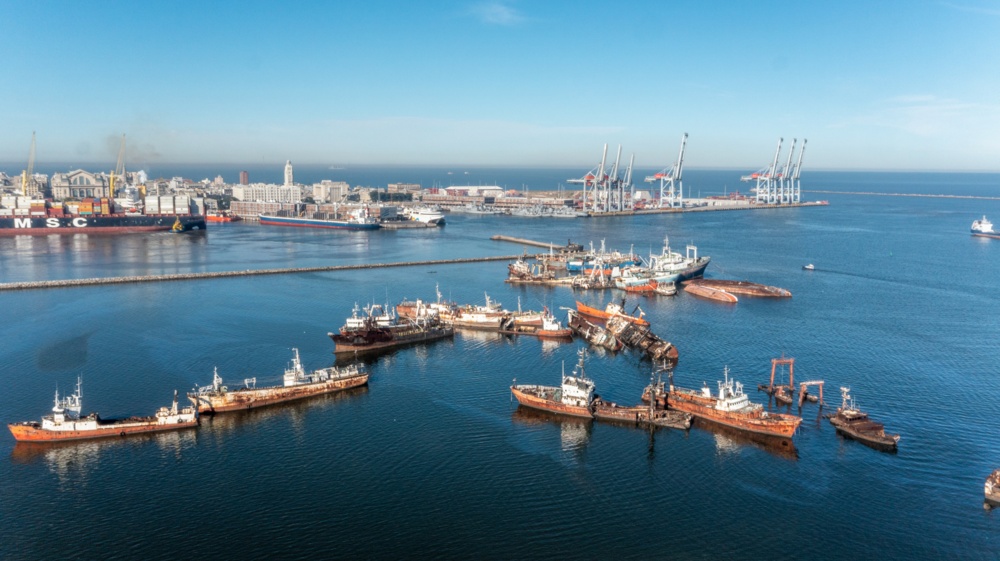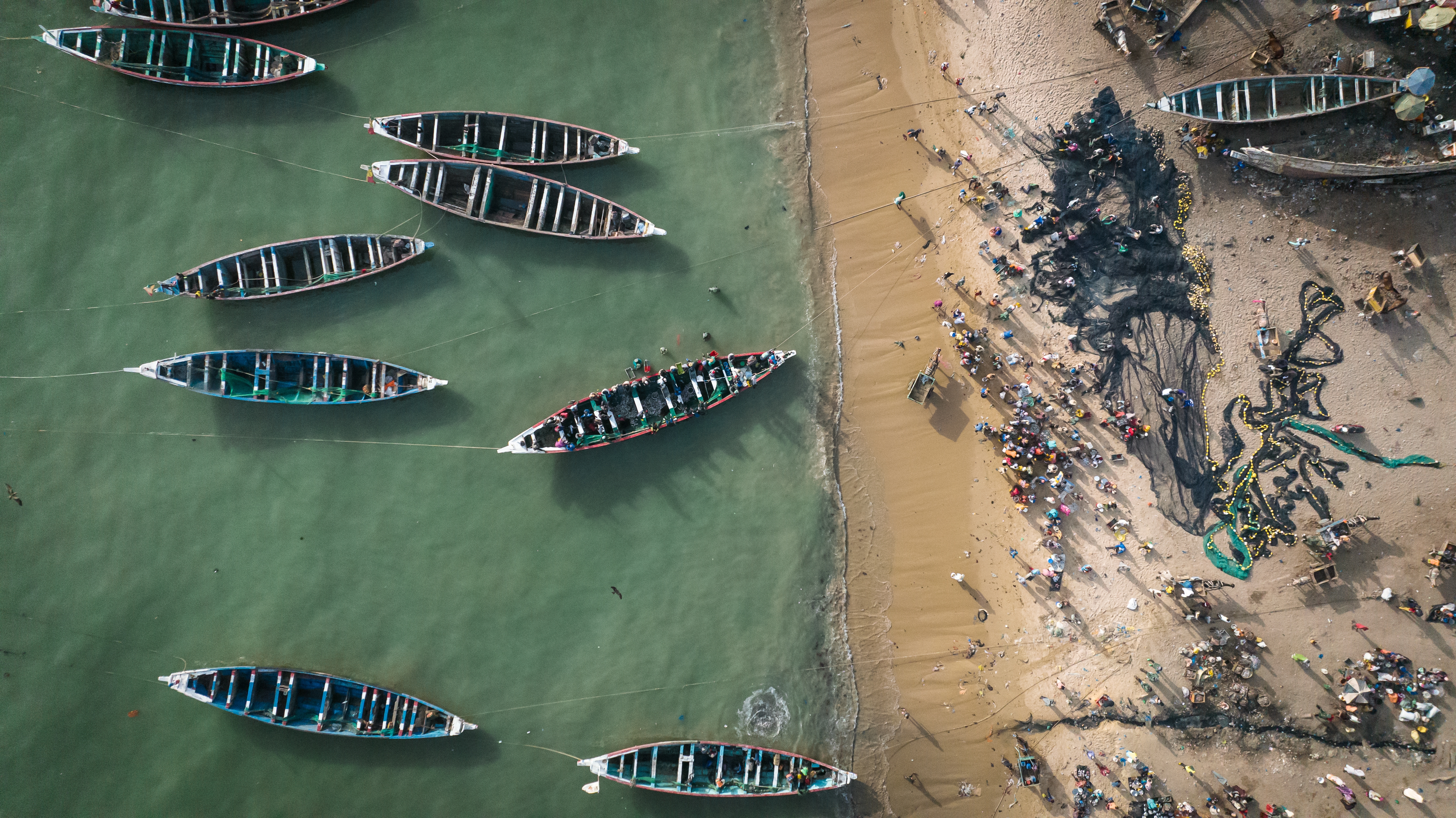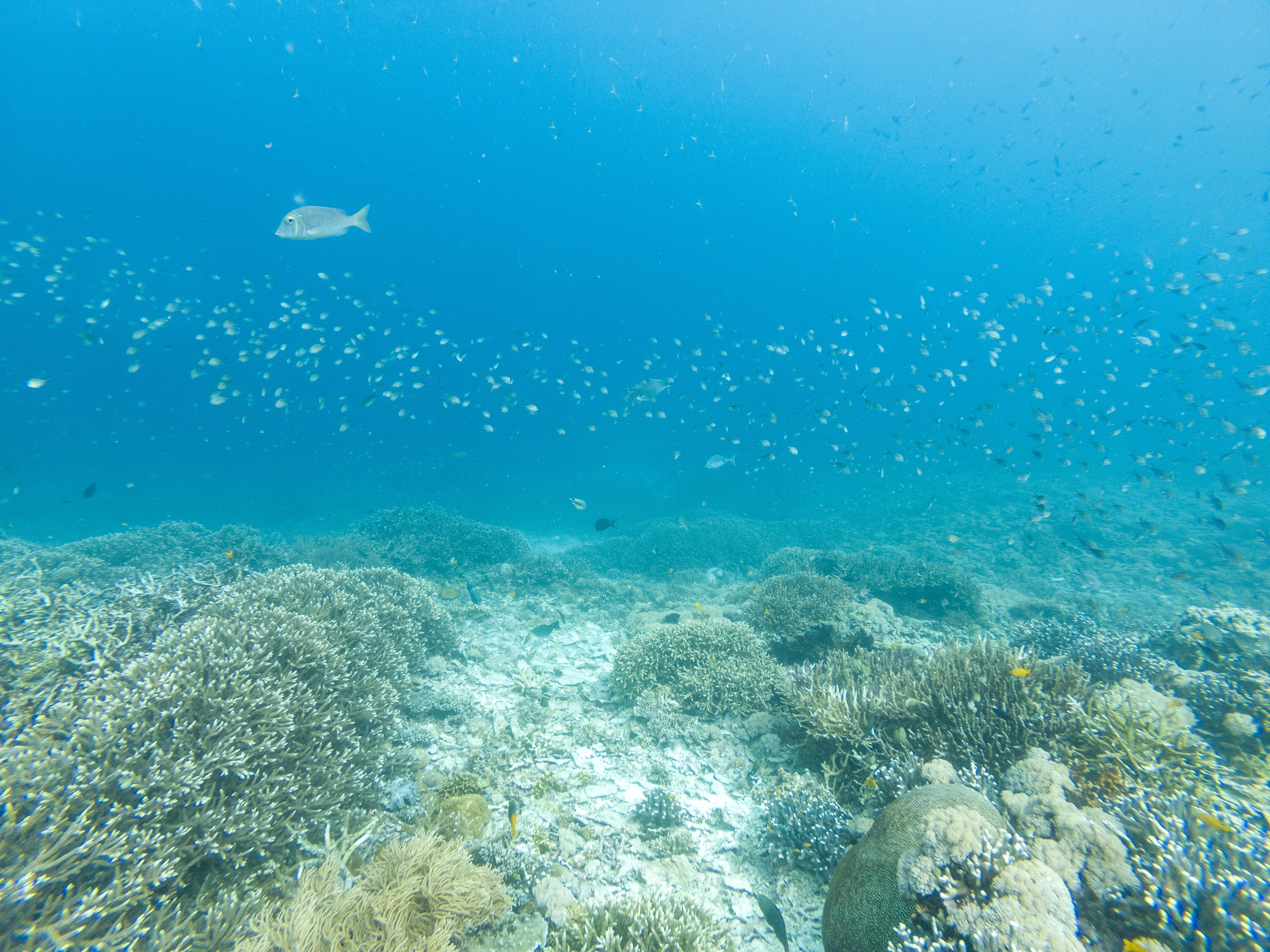
USA sanctions Chinese vessels engaged in human rights abuse and illegal fishing
Sanctions recently announced by the U.S. Department of the Treasury on a number of Chinese fishing companies, including the Dalian Ocean Fishing Co., Ltd, are an important milestone in the fight for more sustainable and ethical fisheries. This, alongside our own investigations into the Dalian Ocean Fishing Co., Ltd, demonstrates the need for greater transparency in the sector.
The United States of America has issued sanctions against several companies that own vessels in the Chinese distant water fleet, in an effort to put an end to human rights abuses and illegal, unreported and unregulated (IUU) fishing. The U.S. Department of the Treasury’s Office of Foreign Assets Control placed sanctions on two individuals and the networks of entities they control. One of these entities is the Dalian Ocean Fishing Co., Ltd, a company that EJF and other groups have investigated and raised the alarm on, including in our report the “Ever-Widening Net”.
These sanctions freeze the U.S. assets of the individuals and companies and bar them from doing business in the U.S., impacting 157 vessels and the individuals running and profiting from these companies. We welcome these sanctions, as they address the wider economic footprint of rogue fishing fleets and recognise the link between environmental destruction and human rights abuses. They also show that nations can go beyond traditional penalties on individual vessels and use financial tools to address illegal fishing and associated abuses. This tangible consequence is an important step towards compelling China to rein in its distant-water fleet.
China's is the largest fleet of any country, operating across the globe with commensurately vast impacts on marine ecosystems, workers on board and small-scale fishing communities. Fish caught by vessels associated with allegations of human rights abuses and environmental crimes often make it into international markets. The complex onshore corporate structures of fishing companies make it very difficult to hold them accountable for their outsourced impact.
The Dalian Ocean Fishing Co., Ltd is subject to a wide range of allegations of human rights abuses against Indonesian migrant workers – many of whom EJF interviewed in our investigations. Some of the reported abuses workers told us about included multiple deaths of workers denied access to hospitals, violent physical assault, average working days of 18 hours, deduction of wages, confiscation of passports and being forced to drink unclean water.
Their environmental impact is also incredibly devastating, including reports of shark finning, dumping juvenile fish, the use of prohibited gear and underreporting gross tonnage. The U.S. Department of the Treasury refers to many of these practices in their statement about the Dalian vessels, citing them as reasons for their sanctioning.
These vessels have taken advantage of both inadequate controls from fisheries authorities and an acute lack of transparency in the sector as a whole. It is critical that we now see a rapid improvement in China’s oversight over its fisheries sector. To address the issues highlighted by these sanctions, China needs to reform its fisheries governance framework and to increase monitoring, control and surveillance to ensure its global fleet operates legally, sustainably and ethically.
Transparency across the global fisheries sector is key to prevent further harm and to create a safer, more sustainable industry and ocean. By changing the opaque environment which allows vessels responsible for IUU fishing and human rights abuses to thrive, we can advance sustainable and ethical fisheries to the benefit of the entire world.
The tides are turning for illegal operators at sea – before these sanctions, President Joe Biden signed a national security memorandum to fight illegal fishing. The EU is committed to maintaining a zero-tolerance approach to IUU fishing, underpinned by a ‘carding scheme’ that warns and sanctions poorly-performing nations.
The steps taken by the USA and EU are a signal for the broader international community: it’s time to commit to stronger action to stamp out IUU fishing and human rights abuses at sea. We therefore call on countries who import seafood from China and other high risk flag states to commit to more transparency and traceability measures and stronger sanctions when offences are detected. Only then can we deter further abuse and protect people, wildlife and the ocean.
SIGN UP FOR OUR EMAILS AND STAY UP TO DATE WITH EJF

